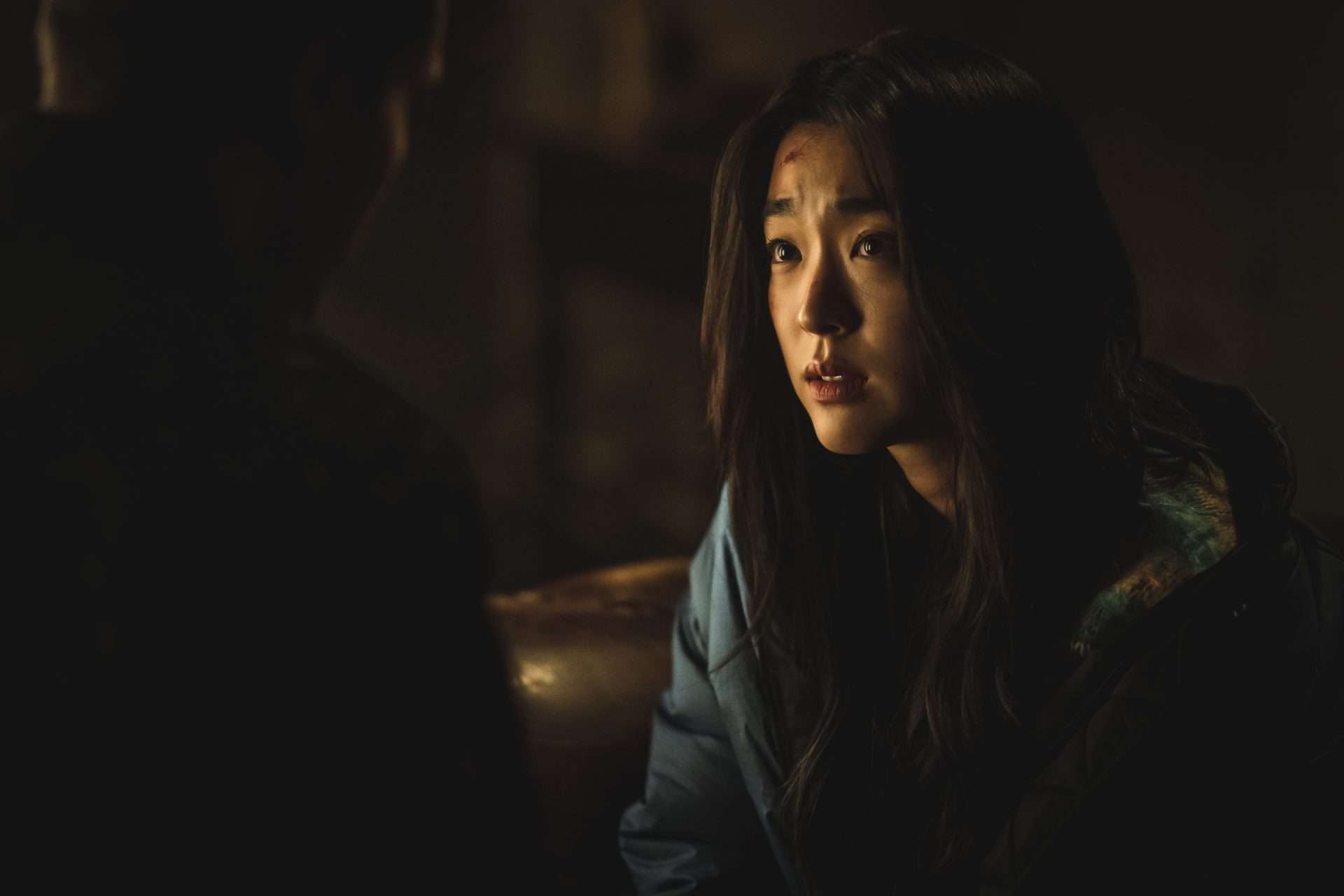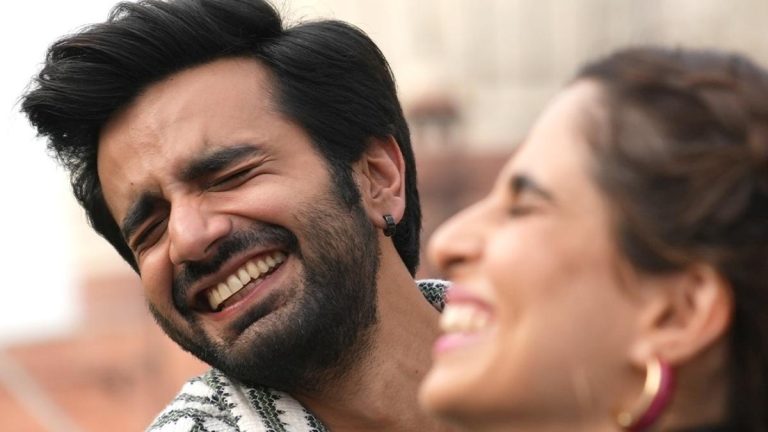Kim Hi Jeen’s directorial, My Name is Loh Kiwan, is an adaptation of Cho Haejin’s 2013 book, I Met Loh Kiwan. The film is a sober love story set amidst the bleak situations.
My Name is Loh Kiwan (2024) Plot Summary & Movie Synopsis:
The film begins with the arrival of Loh Kiwan (Song Joon-ki) in Belgium. He is a North Korean defector who has somehow sourced a counterfeit passport and now hopes to get refugee status in Belgium. But of course, he has to battle the doubt and reservations of authorities in granting him such benefits. He is given a huge time window before he can appear for his next interview with the authorities.
Kiwan is left helpless as he has no livelihood nor sufficient money to sustain himself in the period he has to wait out. He passes nights in public washrooms and scrounges food from leftovers dumped in waste bins. He recycles bottles to make short cash. Through flashbacks, we learn what transpired that made him seek asylum in a foreign country. Kiwan and his mother had fled North Korea and settled in China for a better life. Sadly, Kiwan lands himself in a soup when he has to resort to hiding, for he protests against the mistreatment of a fellow worker at his factory.
Kiwan’s mother has to take up work at a restaurant to sustain themselves. However, when cops land at her workplace, and she denies knowing of his whereabouts, Kiwan pops up. The mother and son try to escape. But she gets hit by a truck. Kiwan’s uncle is compelled to sell her body to the hospital for cash that’d enable Kiwan to flee to another country.
The film cuts to the present. Kiwan realizes a woman has stolen her wallet. She is tracked down. She tells him she’d return it only if he doesn’t file a police complaint. Marie (Choi Sung-eun) had already given the wallet to a dealer to whom she owes a lot of money. However, he refuses to hand it over until she agrees to play for him at a shooting game. Overcome by compassion, especially when she learns the wallet is Kiwan’s only remaining tie to his mother, she decides to accept the offer. She even secures him a job at a meat factory. The two move towards romance.
At his new workplace, Kiwan finds a friend in a Chinese-Korean co-worker, Kim Seon-ju (Lee Sang-hee), who is working in Belgium to enable the funding of her daughter’s brain surgery back in China. She assures Kiwan she’ll testify at court in his favour. However, when the day comes, she flips, betraying Kiwan. Only later does she regretfully admit to him how she was bullied by the refugee authorities into lying. Otherwise she and all of the co workers would have got fired. Eventually, she is deported to China when her work visa doesn’t get an extension. As a means of making amends for her wrong, she mails him a newspaper clipping about his mother’s death that effectively makes his case indestructible.
My Name is Loh Kiwan (2024) Movie Ending Explained:

Do Kiwan and Marie Meet Again?
Marie lands herself in big trouble when she allows herself to be defeated at the matches. But a bigger mafia boss has his eyes on her. He tells her dealer he’d like to buy her out. Enraged at being continually forced into being under his thumb, the dealer kills him. This sets off a spate of alerts on him and Marie. Marie has no option but to leave the country for her safety. Kiwan promises her he’ll join her soon, and they’ll travel the world. The film ends with a coda full of hope. Kiwan declares he realized his ultimate wish has been to leave a country whenever he wanted. By dint of his hard work, he is able to save up and finally leaves Belgium. He reunites with Marie after a year, their love remaining as firm as ever.
My Name is Loh Kiwan (2024) Movie Review:
Kim Hi Jeen’s film is a tentative story of romance and hardscrabble grit, where the two are pushed into uncomfortable proximity. At the same time, the two become contingent on each other for survival and staying afloat. It’s a story about resilience and marching on in spite of progressively worsening situations. Survival is key, and the film emphatically nudges us into understanding this, clutching it firmly instead of chucking everything once there’s anything spirit-crushing.
The two central characters are damaged and fraught individuals. Both are battered by life’s cruel blows and joined in an insurmountable grief over the passing of their mothers. Their circumstances couldn’t be more different, even though they share a language. While Kiwan is dogged in carving out an existence and going on living, Marie is circling a total collapse and surrendering.
Marie’s backstory is etched more sketchily, with significant transitory moments inexplicably skipped and replaced by a generic track involving an unwanted entanglement in the underground business. We sense she drifted to it as a desperate and reckless means of shoving aside the crushing melancholy about her mother as well as a stew of guilt and resentment she has with the way it has been handled by herself and her father. She is constantly raging at her father, accusing his decisions led to her mother’s death. Marie is brash and skids over into dangerous terrain, projecting a roughness of demeanor. But Kiwan is able to see into her inherent kindness and sensitivity.
From the embers of tragedy, the film fashions a gentle romance that’s often overwhelmed by the severity it’s girdled in. The world is harsh and merciless but there can be found pockets of emotional solidarity and bursts of generosity at unexpected corners, lifting the suffering souls and hauling them along. Loh’s hardened notions also soften as he encounters more of life’s difficult ways. The narrative primes the viewer for an arc that stretches from an idealistic, self-harming naivete to realizations about one’s place in the world. It is certainly a coming-of-age story for the titular protagonist, who essentially grows in confidence and wises up about the brittle humanity of others.
Loh begins as someone almost haughty and stubborn about ethics. His worldview slowly expands as he is flung into the deep end. Observing other stragglers trying to make the most of their grim situations, he inches closer to a holistic empathy into the meaning of dignity and the dimensions of aspirations. The film is weakened by a surfeit of well-acted but too broadly underlined flashbacks that don’t do much in deepening our understanding of Loh beyond the fact he is forced into growing and learning only once he lands in Belgium.
His going through the rigmarole of securing refugee status is what strengthens him and helps him forge a sense of identity. While Loh has a chunk of the film’s emotional journey, it is Choi Sung-eun whose affecting dynamism as Marie registers the strongest. She is spectacular as a woman who is still hurting from her raw scars and whose hold on life is shaky. She doesn’t know how to pull herself out of the vortex she has put herself in. Loh empowers her to make that dive out necessary for her well-being. The film thrives on its sincere performances to render forgivable few of the broad strokes in its writing.








